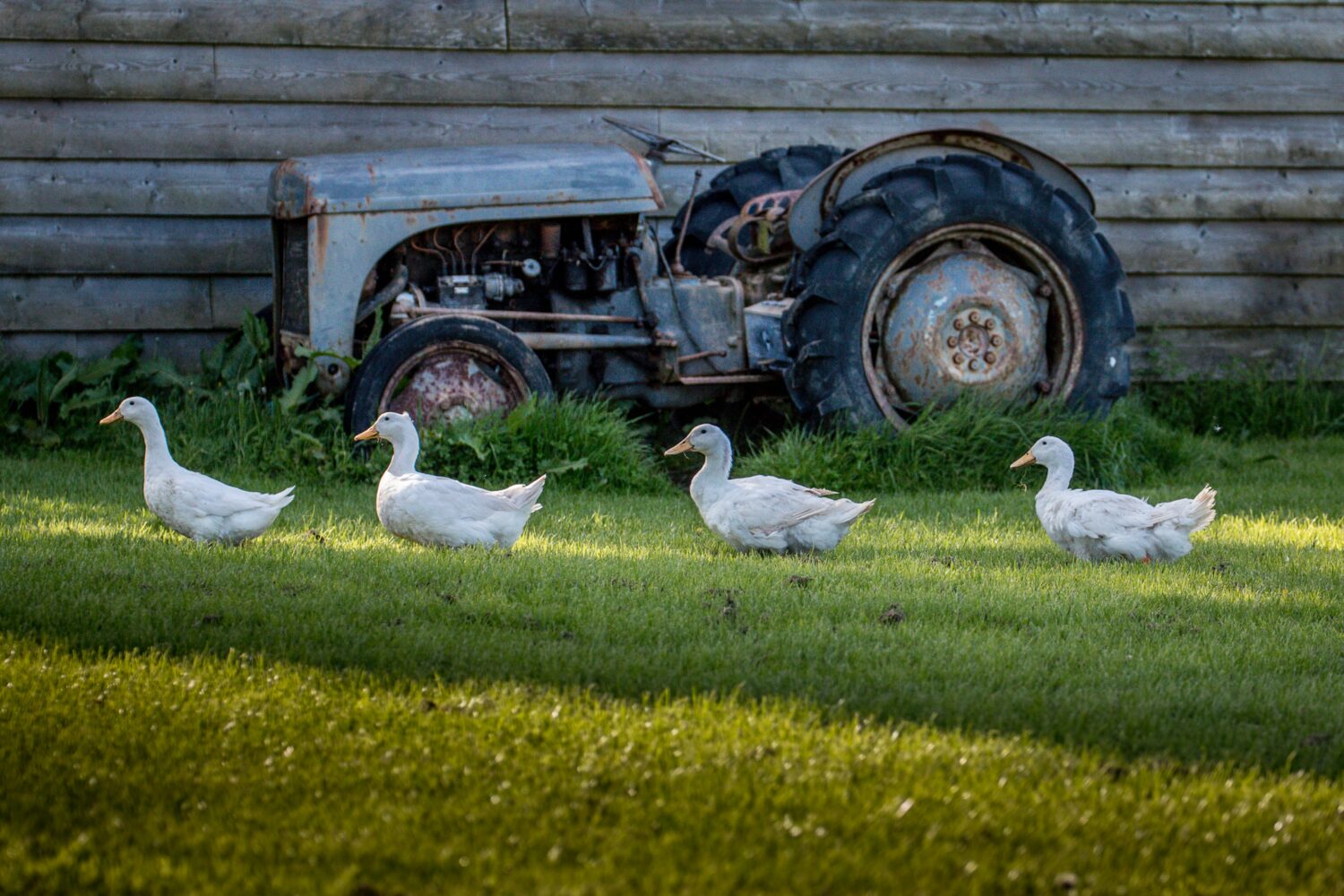Silent majority
A commitment to animal welfare is one of the strongest signs politicians can give that they are on the public’s side, argues Jonathan Birch
In 1822, the UK passed the world’s first ever animal welfare law: the Cruel Treatment of Cattle Act, or “Martin’s Act”, which protected a small number of animals from extreme abuses. Two hundred years later, we passed one of the world’s newest: the Animal Welfare (Sentience) Act 2022, often known simply as the Sentience Act. The new act creates a duty on ministers to pay all due regard to animals as sentient beings. I advised the government on the wording of the new act, recommending the inclusion of some invertebrates, such as octopuses.
It is fair to say there has since been a loss of momentum since then. The Sentience Act was intended to be the foundation stone in an ambitious action plan. Yet in May, the Animal Welfare (Kept Animals) Bill, a core piece of the programme, was dropped by the government after having been stalled for over a year. When I talk to policymakers in this area, I no longer get a clear sense of a shared agenda. Labour should make the drive towards higher standards a key priority – not only for the sake of animals, but for the sake of its electoral chances. Here are five principles that should be at the heart of that mission.
Animal welfare is part of who we are
Animal welfare is sometimes seen as a marginal policy area: a worthy topic, yes, but not a major election issue. I think this misses something big. It is true that, in showpiece debates during election campaigns, animal welfare is often overshadowed by the economy and public services. But few other issues cut so directly to the heart of who we are and what kind of society we want to live in.
To see what I mean, just imagine a party going into the next election promising to bring back foxhunting. Its campaign would instantly implode. In 2017, Theresa May found that even a promise of a free vote on the issue was politically damaging, and the idea was ultimately dropped. I am not sure any other policy area has the power to corrode a party’s prospects so quickly. The truth is that animal welfare is a key part of our identity as a country: we respect animals and we want to move forwards on animal welfare, not backwards. To go into an election promising to roll back progress is to show that you do not understand one of the most widely shared British values.
In the case of farming, animal welfare improvements are ‘win-win-win’: animals benefit, consumers benefit and producers benefit
Conversely, a strong, demonstrable commitment to animal welfare is one of the most powerful advantages a party can give itself in an election battle. To put clear water between yourself and your opponents in this area is, politically speaking, incredibly valuable. This was one of the things Labour got right in the 1990s and 2000s.
It was also – it must be said – something Boris Johnson got right. In his first speech as prime minister, he expressed his desire to “promote the welfare of animals that has always been so close to the hearts of the British people”. He understood the political centrality of animal welfare, even if the path from words to actions was rather tortuous. It is far from clear his successors share this instinct, leaving Labour and other opposition parties with a chance to make political headway.
High welfare standards are in everyone’s interest
Animal welfare is not a zero-sum game in which human interests are pitted against the interests of other animals. Nor is it about pitting urban interests against rural interests. It is about promoting our common interest. There is a deep human need to relate to other animals in a positive way and to treat them with care and respect. Good law and regulation form part of how we can achieve this.
In the case of farming, animal welfare improvements are ‘win-win-win’: animals benefit, consumers benefit and producers benefit. British farmers want to be supported in maintaining high welfare standards. They don’t want a global race to the bottom in which they are forced to compromise on welfare in the name of efficiency. A model of high welfare standards combined with clear, reliable, prominent labelling helps everyone.
New technologies must be used responsibly
Traditional selective breeding has been a mixed blessing, leading to great efficiency gains but also to terrible welfare problems. Over the past 60 years, we have bred chickens to grow at three times their natural speed to more than three times their natural weight, going from birth to slaughter in under 40 days – so fast that their legs and hearts cannot easily support them, leading to serious health problems in the last few weeks of life. I have never heard anyone express support for such practices, and yet they have quietly become normalised. The right approach is that being taken by major supermarkets in the Netherlands and by Marks & Spencer: phasing out these breeds in favour of slower growing ones. We need stronger incentives for supermarkets to do the right thing.
The picture is being complicated further by genome editing: directly changing the genetics of breeds using technologies such as CRISPR. Newly legalised by the Genetic Technology (Precision Breeding) Act 2023, this has the potential to help with these problems – but also the potential to make them much, much worse. Proper regulation is crucial to ensure the technology is used responsibly. In a recent report, the Nuffield Council on Bioethics called for a traffic light system in which independent experts classify breeds as red, amber, or green, where ‘red’ implies the welfare problems inherent to that breed are so severe it should be discontinued, and those breeds at risk of falling into the red zone categorised as amber. Without something like this, we risk sleepwalking into an animal welfare disaster. Genome editing has the potential to turbocharge selective breeding, creating the potential for current trends to accelerate.
Animal welfare counts for every department
The motivation for the Sentience Act was the concern that other animals often get overlooked in policymaking. Consider the Treasury’s Green Book, a 148-page guide to policy evaluation intended for use throughout the civil service. It does not contain the word ‘animal’ (there are, by contrast, about 100 mentions of the environment). The fear is that, although the environment gets remembered (a good thing, of course), individual animals are forgotten. Policies receive environmental impact assessments but never animal welfare impact assessments.
And yet there are countless ways in which policies can affect animal welfare. Take trade deals: a rushed trade deal can allow cheaper, lower-welfare products to flood the market. Not what the public wants, and not the right thing to do. We need ways of systematically assessing the impact on animals of our policy decisions. It needs to become a normal part of policy evaluation right across government.
Britain has a global leadership role
It pains me to see Britain falling behind other countries on a range of animal welfare issues. Sweden, Norway and Switzerland have all banned the routine use of farrowing crates (in which pregnant sows are confined from around five days before giving birth until around 28 days after). Switzerland has also banned the live boiling of crustaceans without prior stunning, joining Norway, New Zealand, Austria, and parts of Australia and Italy. California’s Proposition 12, recently upheld by the US Supreme Court, bans not just gestation crates, veal crates and battery cages (going beyond UK law on the last of these issues) but also bans the import of the products of these practices from anywhere in the world. That shift from regulating welfare locally to regulating imports is crucial, because it stops local producers suffering for their higher welfare standards by being undercut. This is the only realistic way to stop the global race to the bottom nobody wants.
The current government has, in the past, mooted banning imports of foie gras and fur, but the plans appear to have been dropped. Labour, when writing its 2024 manifesto, should think about how to exert control over the welfare standards of the products that flow across our borders. We have the ability to prevent the sale of products such as white veal and farmed octopus and the power to stop live animals from being exported from the UK for fattening or slaughter. We should use the power we have.
As things stand, we can still count ourselves leaders on animal welfare. The Animal Protection Index, which reviews animal law around the world, puts us in a small top category with five other countries (Sweden, Denmark, the Netherlands, Switzerland and Austria). We have something to take pride in, then – but also something to lose.
In fact, our ambitions should go beyond just keeping up with the leading group. This is an area in which we can be pioneers, developing new models of regulation that other countries want to emulate. The issues here – selective breeding, genome editing, policy evaluation, regulating imports and exports, and protecting sentient invertebrates – are all areas in which we are well placed to clear new paths.
Image credit: Ray Harrington via Unsplash
Image credit (pinned N&I): Chris Linnett via Unsplash

